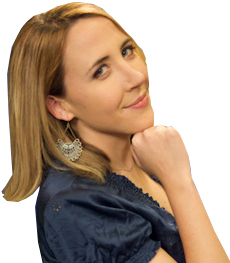
The quandry that I have been considering most recently is whether canned laughter and good comedy are mutually exclusive. Perhaps 'canned laughter' is not quite the correct phrase for the phenomenon that I am thinking of but it is a useful generic term for 'actual human chortles that eminate from within the fabric of the programme but outside of the theatre of action.' After the great sitcom revolution of the 1990s (post-dinnerladies), shows like The Royle Family ushered in a new naturalistic style which encouraged less reliance on and greater disdain for the laughter track. Canned laughter began to sound desperate, as if the producer needed to prompt the audience at home to laugh at appropriate moments.
Now, Peep Show would feel ridiculous with a laughter track. It would shatter the illusion of imprisonment inside the warped minds of the the El Dude brothers. Being a mockumentary, Summer Heights High would feel disconcerting if a laughter track were added. Enforced merriment would destroy the delicious mix of consternation and amusement that an audience feels in responce to Mr G's impropriety. So, is it fair to say that recorded laughter no longer has a place in modern comedy? On the one hand, I am very much of the opinion that good comic writing should speak for itself and I acknowledge that in many cases a laughter track is unnecessary and awkward but there are occasions when its use is justified.
I would cite I'm Alan Partridge as a prime example. The reason that a laughter track works on this programme is that it naturally follows on from the chat show format of Partridge's previous offering Knowing Me, Knowing You. I'm Alan Partridge charts an egotist's desperate struggle to regain attention from a public with which he has no hope of connecting. To watch the carnage of his life unfold without the audibly amused response of an audience would feel empty. The beauty of Partridge is in the attention to detail. Everything from the make of Alan's car to his favourite Bond Film have been meticulously mapped out in order that his every utterance oozes comic potential. The utilization of the laughter track is no different. Even though I'm Alan Partridge is not a studio sitcom, Armando Iannucci maintains that key scenes originally shot on location were later recreated in a studio and filmed in front of an audience. The studio laughter track was then fitted in on top of the original scenes so that the 'audience without' hears the authentic and immediate reaction from the 'audience within'. Partridge is a wonderful model of how to balance old-school stage atmosphere with new-school naturalism.
The League of Gentlemen is an interesting laughter track anomaly. As an offbeat and reasonably dark offering, one would not expect The League to include anything as artificial as a laugther track but for the first two seasons this was the case. Those who are familiar with the programme may not even remember the presence of recorded laughter in the initial stages. So why did the commissioners/producers/directors/Gentlemen themselves make the decision to include it? Gatiss, Shearsmith and Pemberton would be the first to admit that their show was somewhat tasteless and there is a theory that the programme-makers were so nervous about how the bizarre characters of Royston Vasey would be received that the laughter track became something of a security blanket for them. However, The League of Gentlemen is essentially an old-style sketch show, albeit a very unique one. Some characters never reappear after one episode, there is very little cross-sketch group interaction and there is only minimal plot advancement throughout the series. Quick-fire sketch shows often suit, nay, require the atmosphere of sponteneity afforded by studio laughter. In the end, if the presence of recorded laughter is not distracting enough to render it noticeable, then there is very little basis on which to criticise it.
The League eventually dropped the canned laughter for the third series. If you follow the afformentioned security blanket theory then this must mean that the programme-makers had become more confident in their work by this stage and felt ready to weigh their mainstream anchor. In my opinion, the decision to remove the studio audience was made because the third series is fundamentally a different entity from those which came before it. Each episode focuses more sharply on an individual stories. The depth created by detailed characterisation dispenses with the laughter vacuum and also advances the programme in a new and intriguing direction. Canny decision, boys.








